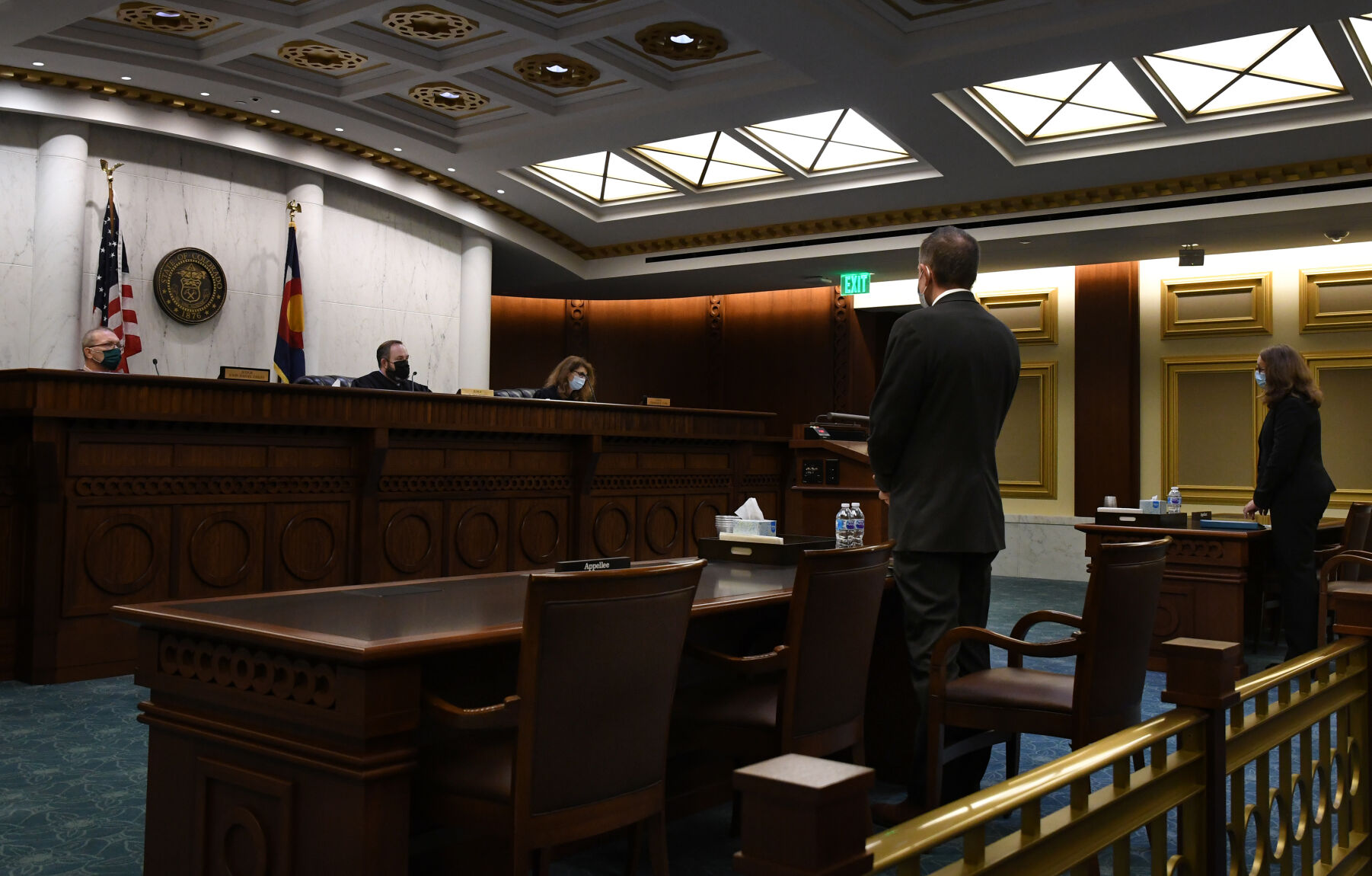Appeals court rules against Teller County sheriff, reinstates lawsuit challenging immigration enforcement

Six Teller County taxpayers have the right to sue their sheriff for his enforcement of federal immigration policies in an apparent violation of state law, the Colorado Court of Appeals ruled on Thursday.
Sheriff Jason Mikesell had attempted to argue that an atypical funding scheme for the county jail meant that on paper, no taxpayer dollars were at issue and the plaintiffs could not sue to challenge his agreement with U.S. Immigration and Customs Enforcement. A three-judge panel for the appellate court, however, flatly rejected that claim.
“Aside from the Jail’s corporate form, there is no difference in how – and why – the Jail and the Sheriff are funded,” Judge Terry Fox wrote in the Dec. 16 opinion. “Because the Jail uses Plaintiffs’ tax dollars, and since those funds are being used in an allegedly unconstitutional manner, we conclude that Plaintiffs have demonstrated a clear nexus sufficient to confer taxpayer standing.”
The panel’s decision reinstates the lawsuit after a lower court judge dismissed it last year. The litigation revolves around the expenditure of county tax money to detain people at ICE’s request, pursuant to a cooperation arrangement with the federal government.
Alex Ogle, communications manager with the Colorado Immigrant Rights Coalition, applauded the appellate panel’s decision.
“Every other county in Colorado has recognized the harm that these agreements cause to community safety because transforming local law enforcement into federal immigration agents breeds mistrust, endangering everyone,” he said. “Teller County Sheriff Mikesell has continued to publicly endorse this dangerous practice, forcing the people of Teller County to fund his prejudice against immigrants.
“CIRC envisions a state in which there is no cooperation between local law enforcement and ICE in order to create safe, equitable and just communities in every county.”
According to the lawsuit, the Teller County Sheriff’s Office entered into an agreement with ICE in early 2019 that would enable deputies to carry out immigration-related duties while assigned to the jail or correctional facilities. It was known as a 287(g) agreement, based on the provision in federal law allowing individuals to perform the work of an immigration officer.
The agreement reportedly empowered deputies to issue ICE detainers to hold someone for up to 48 hours, giving ICE the time to take them into custody. They could also interrogate people in the jail about their right to be in the United States, prepare statements for ICE review and transport individuals to ICE detention facilities.
The expenses associated with the 287(g) agreement – which is the only one of its kind in Colorado – are the responsibility of the sheriff’s office.
In May 2019, Gov. Jared Polis signed House Bill 1124, forbidding law enforcement officers from arresting or detaining people under federal immigration law, except in response to a warrant signed by a judge. Aside from the financial obligations and the potential impact on the public’s trust in law enforcement, the legislature noted that carrying out immigration-related detainers implicates the Fourth Amendment’s guarantee against unlawful searches and seizures.
Soon after the governor’s signature, the taxpayers sued Mikesell. They sought a declaration from the court that the sheriff had exceeded his authority by entering into the 287(g) agreement.

Although taxpayers are not able to challenge every expenditure of government money, the notion of taxpayer standing – meaning the ability to show an injury under the law – hinges on a “clear nexus” between allegedly illegal conduct and a person’s tax dollars. In this case, the plaintiffs argued Mikesell had spent public funds for deputies to travel and receive immigration training, for jail equipment related to the 287(g) agreement, and for carrying out the immigration-related duties.
However, District Court Judge Scott Sells dismissed the lawsuit, crediting Mikesell’s explanation that there were actually no taxpayer dollars at issue due to a peculiar feature of Colorado law. The state’s Taxpayer’s Bill of Rights, which imposed restrictions on taxing and spending after it passed as a 1992 constitutional amendment, also gave rise to government enterprises that provide services based on user fees.
Since 1997, the Teller County Facilities Corp. has operated the jail as an enterprise, charging fees for housing detainees.
There are “zero dollars from taxpayer revenues allocated to the Jail Enterprise Fund,” the sheriff argued in a brief to the Court of Appeals.
That assertion ran into immediate resistance from the appellate panel, which established at oral arguments last month that Teller County’s general fund, in fact, pays for the fees the jail enterprise charges.
“Do you dispute the fees are being paid with tax dollars?” Judge Craig R. Welling asked Mikesell’s attorney, Eric Hall.
“No,” Hall conceded.
To find otherwise, the panel noted, would mean Teller County is in violation of state law, which requires counties to maintain jails “at the expense of the county.” Because Teller County is complying with the law, Fox indicated in the panel’s opinion, clearly the tax dollars of residents are involved.
“The County cannot now, faced with a taxpayer lawsuit, claim that it does not fund its Jail because of its enterprise status since it retains the statutory obligation to do so – an obligation it has been fulfilling,” she wrote.
The lawsuit will now return to the district court. The ACLU of Colorado is one of the entities involved in the legal challenge, and also assisted in suing the neighboring El Paso County sheriff over immigration detainers.
“The reasons this case is being litigated is because we alleged the sheriff exceeded his authority under state law by carrying out this immigration enforcement,” said Mark Silverstein, the group’s legal director. “The sheriff has a duty to enforce Colorado law. Immigration law is federal law. The legislature has spoken that police and sheriffs are forbidden to hold someone beyond their release date.”
The plaintiffs are Berck Nash, Joanna Nash, Rodney Saunders, Darlene Schmurr-Stewart, Paul Michael Stewart and Janet Gould.
A spokesperson for the sheriff’s office did not immediately respond to a request for comment.
The case is Nash et al. v. Mikesell.














